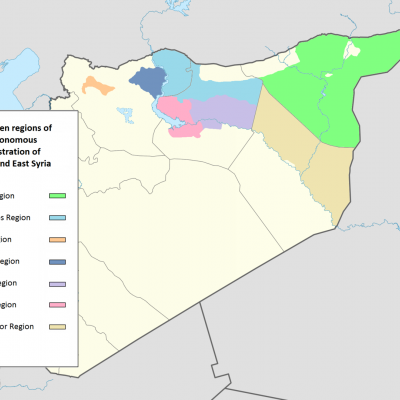Kurdish Authorities Warn Of “Humanitarian Catastrophe”
Turkey Accused Of Controlling Water Flow
3 Jul 2022 by The Water Diplomat
EDINBURGH, United Kingdom
The Autonomous Administration of North and East Syria (AANES) has published on its website a statement accusing Turkey of “implementing special means of war” by diminishing the flow of the Euphrates River to 200 cubic meters per second, well below the agreed 500 cubic meters per second.
The AANES, the de facto political power in the Kurdish region, accused Turkey of violating the tripartite agreement between Turkey, Syria and Iraq which determines minimum levels of water flow at the borders. It has called the reduction a means of attack on the Kurdish people.
The reduction of water flow has caused the Tishrin hydroelectric dam to halt operations and water is now being used to cover essential consumption needs only.
Hind Al-Ali, co-chair of the Executive Council of the Democratic Civil Administration of Tabqa, said: “The Turkish state is putting pressure on the region economically, as the lack of water affects the agricultural sector, especially that the majority of the Autonomous Administration's residents work in agriculture and most of the north and east of Syria are agricultural areas."
Recently, Turkish president Tayyip Erdogan, announced plans to initiate a military offensive on the country’s southern border to create a 30 km “safe zone”. The US has raised concern over these plans from NATO-member Turkey.
Kurdish authorities warn of an impending humanitarian catastrophe if the terms of the international agreement between the three countries are not upheld.
Related Topics
Climate Change And Conflict: 5 Million Without Access To Safe Water In Syria
5 Dec 2021 DAMASCUS, Syria
Crisis comes on the back of a decade-old conflict, an economic crisis and struggles to cope with the COVID-19 pandemic.

21 May 2021 Damascus
Claims and counterclaims persist amid ongoing water cutoffs in Syria's conflict-torn Hasakah region. Between half and million and one million people are without water as aid agenci...
